Hosts Mary and Blake discuss all things The Wedding and Both Sides Now with, Anna Foerster, director of both episodes. Anna is a funny, intelligent, and charming director who is an absolute treasure to the Outlander franchise. In this episode you’ll learn all about Claire’s troubles in the wedding, the steamy sex scenes, breaking down the science of film making, emphasis on the nuances of acting, the Frank controversy, if Claire actually heard Frank at Craig Na Dun, how scary Tobias Menzies can really be, the infamous motorcycle driveby, “in camera” effects, Anna’s favorite scene, spanx, mom jeans, and much more!.
Subscribe: iTunes|| Download: (.mp3) | Mobile Play | Like Us On Facebook

Outlander Cast: Joining us now is Anna Foerster an accomplished visual effects artist, cinematographer and director whose most notable works include films such as Independence Day, Pitch Black, The Day After Tomorrow, 2012, and White House Down. She’s also directed numerous episodes of television for shows such as Criminal Minds, Unforgivable, and Army Wives. But WE all know her as the director of the episodes, “The Wedding” and “Both Sides Now” for our favorite show on Starz, Outlander. Anna thank you so much for joining us on Outlander Cast today.
Anna Foerster: Yeah, you’re very welcome. I am very much looking forward to talking to you about all this.
OC: And we are pumped, too. So let’s just jump in. Can you tell us how you got the job with Outlander? And if you were a fan of Outlander beforehand.
AF: Well it was almost way over a year ago actually, my agent called me and said, “Hey I have this really interesting project that landed on my table. They are interested-they are looking for directors. And they would like to meet, and I have four scripts for you to read. And you should read it.” And I had heard about Outlander, but I haven’t read the books. So I decided before I wanted to read the scripts, that I have to read the books. So I kind of, I ordered the book and, as you know it’s like super thick, and I tried to read as quick as I could, and I got the audio as well. So I was reading and listening and reading like for the next few days, and I got completely hooked on this. And then I read the scripts, the four first scripts, and I thought that it was just amazing what they did with it-because not only they had, they took the book as a blueprint, and then they said ok we make an episode in the essence of Outlander. But on the other hand, they didn’t go and say we are slaves to the book and we make exactly everything as it is in the book. And I was really excited what they started doing with this. And then I went into the meetings, and I met with Ron Moore. And we discussed what they were up to, and I was really, really excited that I was-that they asked me to do “The Wedding” and the mid-season finale. And, eventually actually, I ended up doing the season finale as well. But the funny thing is as well that all the-as I was reading it-I thought, “OK there are like three things in the book, and I won’t spoil anything now, but they’re three things in the book that I think are really, really challenging and exciting from a directing point of view.” And one of them was the wedding, and then the other thing was the end of the book obviously which is now the season finale. So I was actually really excited that I ended up with both of those really exciting, but as well challenging things to do.
OC: It’s like you won a lottery ticket. Not only did you get to direct a series that you, a book that you like, but you got two really of the very important things that you’re talking about.
AF: Absolutely, and it was exciting on one hand but it was scary on the other hand because there’s quite a bit of pressure in terms of there are all those fans that read the book. So, OK now you have to come up with something. You have to deliver something that is GOOD. So it was fun. It was great.
OC: Oh, awesome. Well we want to talk to you about “The Wedding” episode in particular, so what was the set like during the filming of “The Wedding?” Was everyone really, keenly aware of how significant it was to the fans? I know that you had just said you knew, but how was kind of the mood and everything on the set?
AF: You know it’s funny. I think it started out mostly in pre-production that everybody was very aware about how important that episode is, and how anticipated it is. It was more so in pre-production and getting ready with everything deciding on the sets, dressing, the costume and all those things. But once we were on the set and we were actually shooting, this is the amazing thing that always happens in a way that all of the pressure from outside kind of falls away, and it’s all coming from within. You’re all kind of worried about what’s happening on the set, in the moment. How you make it the best at the moment when you’re working. So it’s kind of something that I’ve experienced before that moment you’re actually working on it and you’re on the set that pressure from outside or that expectation kind of vanishes.
OC: Concerning “The Wedding,” one of the things that I really loved about that episode, is the non-linear storytelling device that you guys used. What was the driving force behind that? Was that something that you decided, was that Ron Moore or is that something that you both decided in conjunction together?
AF: That was something that was decided in the writer’s room with Ron Moore and Anne Kenney who wrote the script. And I think it was a genius idea because you’re talking about how anticipated that episode is. So people were waiting for it. But now it comes to you in a way that you’re getting teased, and you have to wait even more. You are getting it piece by piece, and as you move forward you are get little pieces of information that advances the story. But in a weird way, it extends the waiting game in a kind of elegant way. So I thought that was great, and we just run with it, and used it to our advantage.
OC: (Blake) I loved it because when the episode opens up, and they’re already married, and they’re in the room. And I remember looking at it and saying, “Oh my God. Did they actually just make the choice to forget the wedding all together and just show the after effects?” (AF: Exactly) I thought it was great. Because obviously as a non-book reader, I’m just viewing the show as it’s own, and I thought that was a really bold choice. And then I realized they’re going to tell the story in different pieces. I loved that. I thought that was great.
 |
| Photo Credit Dallas News |
OC: (Mary) Where as I, being a book reader, I sat there and said, “Are you kidding me?” They just skipped the wedding? What is going on? But then, of course, we come to find out that, no, you brilliant people of Outlander, you decided to show us a different way, and be able to have the nonlinear story telling. And speaking of that, we did, we got to see so much of Frank in that episode; and as a book reader and as a Jamie lover, it was great for me to see the scenes with Claire and Frank. And I wanted to know how present Frank was on Claire’s mind as the wedding night went along. And is this something we can falter on or are we meant, as the viewers of the show, to sympathize with her?
AF: Well I think Frank was, in the beginning quite present, because the decision she made to marry Jamie was very pragmatic. It was to escape Black Jack Randall and in a funny way as well to have an opportunity to walk as a freer woman now not being constantly watched by Dougal and everything. And having a possibility to make it maybe quicker back to Frank. So in a way, in the beginning, in a very pragmatic way, I think that was something that was absolutely on her mind and it was justified. I think the wedding as such in her mind was completely justified. Then we go with her, and that’s what I like about it. It’s not that we want to judge her for it. We go with her on that journey-how she slowly falls for this man. And she gets enthralled by him, and when she for the first time has sex with him which, you know, she feels like, “OK, so it’s his first time. I’m in control. This is what it is. Let’s get done with it.” And suddenly she realizes and he asks her, “So did you like it?” and she realizes, “Oh my God, I did.” And that’s when she realizes this is bad. I just committed adultery because I liked it. It’s not like to save my ass and get back to Frank, it’s like, “Oh my God, I liked it.” And then I think we realized it. It’s like she walks away from him. That’s when she wants to leave the room and everything, so I think that’s the moment when Frank is very, very present. But then, again we’re going with her on this journey, how she gets sucked into this relationship with Jamie; and I feel once they are having sex the second time, I mean I call it having sex and then later making love which is a very different, you know has a very different tone. I think Frank is not on her mind all the way until the next morning when that ring falls on the ground. And she realizes, “Oh my God, what have I done?” But not only what have I done by marrying, what have I done by falling for this man? So, yeah, I think he’s very present in the beginning and then in the end. And I think…I don’t judge her for that. I think she judges herself for it, and she does it for us. So, yeah, I think because we go with her on that journey we really, I empathize with her, and I feel for her.
OC: Well, since you brought it up, let’s talk about it. Because I wanna talk about the sex scenes. Because they were extraordinary, and you’re right there was a specific evolution of their relationship. It was visually told in the sex scenes. But how did you decide on what you could, and could not, show with the camera angles? And what was the scene like? Explain to me what the situation was like while you’re filming it.
AF: Well the advantage we had on this episode, because it was only two people in a room, we had actually the advantage to rehearse certain things before. And that was extremely, extremely helpful, because we could-away from the pressure of shooting and away from being on the set and fully clothed without anyone watching or listening-we could actually work our ways through all emotional beats first that happened in the first time they have sex, the second time and then the third time. And once we had that figured out, exactly, we kind of choreographed the movements basically almost like you would choreograph a stunt or something. So you really figured out, you blocked it in a way. OK so who is standing? Who is sitting? Why is that? Who is moving towards whom? And then how are we ending up on the bed? And where do we end up? And then it becomes kind of important to figure all this out how you can show this with the camera. Because certain precisions, certain movements we need to figure out in a way so it becomes a pleasing image. And we actually see what we want to see, and we don’t see the things we can’t show. So that was actually a really great thing that we had the opportunity to rehearse that. And then it’s just still very awkward because when you shoot it actually, you have to be aware. Like we decided that there is no frontal nudity, but we decided that we can see back nude. And that sometimes is easier said than done. Because people are moving, and the camera operators are moving, and you don’t want to have just still images. So it becomes an interesting dance between the camera operator and the actors to kind of make that happen. But to have that kind of planned out…maybe it didn’t seem like this and I hope it didn’t seem like this, but there went a lot of planning and rehearsing and choreographing into it that it actually felt natural and not like contrived what we can show and what we show.
OC: Were you behind the camera yourself to make sure you got exactly what you envisioned?
AF: No I was not behind the camera but we had a closed set which is sometimes what you do when you have sex scenes or scenes with nudity. That means you’re basically having a minimal crew in the set and no monitors outside. So it’s just like myself and the two camera operators and the sound in the room and that’s most likely it. And it was almost like I could sometimes speak, I had two small monitors where I could see the two camera angles but I was sometimes talking through the operators and through the actors during the scene. It was a very awkward thing. It started sometimes almost like a choreography. Like we sometimes did certain things again and I was speaking to the camera operators and then again I was speaking to Caitriona and Sam. I mean sometimes you have like some very specific shots, like, for example, how she traces with her hands around his back. And that’s something you want to…I have a very clear idea what I want to see, and then it needs a few takes how you get to this. And you actually talk over it, and it sometimes becomes very technical and then everybody laughs and it’s fine. And it’s kind of so awkward that everybody just laughs and it’s an easy…you know we actually had a pretty good time on set. It’s awkward. There’s no way around it. But Sam and Caitriona, they were such troopers and because we had that time to rehearse before, we kind of gained really trust in each other, and so we had actually a pretty good time on set.
OC: Can you describe Sam and Caitriona’s chemistry? And how was it to direct their relationship especially regarding in this episode?
AF: I mean they have a great chemistry to start off. They are friends in real life, and that’s actually a great basis for their relationship in the story and in particularly the wedding because that’s how the wedding starts off. They are starting off as friends. So that is really a great base. The relationship between them, obviously, goes through very different stages and has different nuances, and that’s where you come in as director where you help them shape it. So, yes, they make it easy for you, but absolutely that’s your part as director that you come in and you kind of start shaping this.
OC: How do you shape that? That’s one of the things I’m trying to understand as a director do you kind of sit down and have coffee with them beforehand, or do you go in during filming and give them a towel and say alright here’s another way I want you to think about it or…?
AF: Yeah, it’s actually both of it. We first started obviously with those rehearsals where we just talk, and we figure things out and it’s more like the emotional beats. But then when you’re on the set, and you sometimes just want to change a nuance or something, and there are so many different techniques. But the both of them, Sam and Caitriona, are absolute, fantastic listeners and listeners-I don’t mean like listening to me-I mean like listening to the other actor. And that is so crucial for actors, in general. I mean, I think it’s almost 90 percent of acting is that they are really good listeners to the other person they are acting with. And because of that, what you can go in, you give a little adjustment to one of them. So let’s say I would say to Jamie, “OK on this take just challenge her. Same words, same dialogue, everything the same, but just challenge her.” So he does that, and sure enough Caitriona reacts to it in a different way. And then you go to the next take and say, “OK, so now this time, beg her.” I’m making a random example, but sure enough what happens is she is reacting because she’s a very good listener and she’s reacting in a different way. And so you sometimes, even after having discussed the broad strokes about what this is about emotionally, you can just fine tune it within the scene by doing things like that. Or even you can do some crazy things. And the funny thing was they were both completely up for this. Like, for example, there’s this moment with Jamie and Caitriona, uh Jamie and Claire, when Rupert and Angus leave the room finally and she’s says to him…she sits on the bed and she says, “It’s late. Maybe we should go to bed.” And we shot that a few times, and I took Caitriona aside and said, “OK, so next time we do that take(and Sam didn’t hear that), just tell him, ‘Get over here and let’s fuck.’” So sure enough because he’s a good listener, right? She’s asked this, and you have that split second of a reaction in his eyes which is just fantastic, and that’s what’s in cut now. So that’s kind of like, you have all kind of different techniques and things where you can shape on set. Sometimes you just have a very straight forward discussion about something technical. Then you can talk about something emotional, but then when it gets to the real kind of fine tuning the little things that’s what you do you kind of play with little adjustments that form the nuances of the performance.
OC: So concerning “Both Sides Now” the mid-season finale, can you explain the challenge of trying to make the two stories between Frank and Claire flow properly together?
AF: Well, I mean I think the challenge starts with the moment that it’s not in the book. So, it was really interesting because when I was reading the book, I was thinking all of the time what’s happening with Frank? What’s happening at that time, in his time? And sure enough I got to answer it in my own way. But it is definitely difficult to have two story lines going parallel and still feeling connected with them. And sometimes we took some really bold choices, for example, at the beginning Frank has this conversation in the police station, and he says, “My wife is not with another man.” And then sure enough you cut to the next image, and she sits there with another man. And that’s really a bold way of going between the two story lines. And it’s almost . . . you feel for Frank. Because you think, “Oh my God, Claire is indeed sitting there with another man.” And then again you have the end of the scene you have her realizing, she looks down at her ring with Frank and then you end up with Frank as well looking at his ring and you kind of connect them in this way. I think there were playful ways of connecting those pieces even from the beginning to kind of give it a certain flow. And then obviously for the end when they both run up the hill, we had to find ways to make that believable, and make that believable that they are both running up the hill but in different times. We used some interesting things as well like in-camera shots for example like when you’re up on Craig Na Dun at the big rock there’s this moment when Frank is yelling for her. He yells her name. And you basically going with his scream over the stone, and you come out on the other side, and you’re in Claire’s world. And what happened is while you go through that stone, the colors and everything shifted, and you are in her time. And it’s the same thing for example when she gets dragged away in the wagon, and Frank walks away to his car. There’s this one continuous shot, but the transition from one time and the other happens while the camera is traveling past that stone. So we were kind of finding interesting ways to keep that story line connected in a visual way.
OC: You said “in-camera.” For someone who is just as ignorant as me, by “in-camera” what do you mean?
AF: What I mean was that it’s not a visual effect. Meaning it’s not like some kind of composite of one shot on one end and then you put something in on the other side, or it’s not a cut. So what happened really is you have Caitriona and the redcoats walking her to the wagon on one side the camera is moving and while the camera-in just a split second while it’s behind that rock-all the settings for the color shift into Frank’s world. So while the camera moves outside of the other side of the rock, we’re in Frank’s world, and we see his car, and we see him walking. So “in-camera” means there is no visual effect it’s all happening in the shot.
OC: Speaking about that time and that part of the episode, when Frank and Claire…could they actually..could Claire really hear Frank? Are we supposed to feel that way during this scene? Or is that just something we are supposed to be emotionally feeling? Could she actually hear him calling for her?
AF: OK, so I think she could hear him inside her. It’s not…she didn’t hear him like he’s standing on top of that hill and he’s yelling for her. I think she could hear his voice within her. And Frank, definitely could not hear her. Frank would have liked to hear her. Frank would have loved so much to hear her but there is absolutely no way he heard her. I mean that’s my take on it. That’s how I shot it. But you can interpret it way differently if you want to.
OC: I really loved this episode. I remember sitting down while I was watching it with Blake and I said, “This isn’t in the book. This isn’t in the book. Oh my gosh! Wow!” It was brilliant.
AF: But when you read the book did you ever wonder what was happening to Frank? What’s happening back there? How long has she been gone?
OC: No! And I kind of felt bad because, you know, I would think being married myself I was thinking, “OK, if I was suddenly back in the past. And I was suddenly married to a stud, how often would I think about Blake?” (Blake: Hey, whoa, whoa, time out) I’m being honest. I’m saying I would be thinking about you, and it’s difficult because you read through Claire’s voice but also being able to see scenes like the wedding it’s…I’m happy that we were able to feel this angst and to know what was going on with Frank because, yeah especially just reading, when I was reading Outlander, I was thinking what did Frank do? Did time even pass? What was even going on in her original time? So I really, really enjoyed it. And I think it was absolutely brilliant.
AF: Yea, I mean that’s exactly what happened to me. I was, when I was reading it, I was wondering this. Then sure enough there comes this episode where it all gets explained. So, yea, that was fun.
OC: So in addition to adding this extra element where our heartstrings get pulled, and we get reminded that she does wear two wedding rings, there’s also this amazing juxtaposition between Frank and Black Jack Randall during this scene, especially when Frank is beating down the people who tried to take his money at the pub. We see his eyes widen slightly as he’s tearing them apart kind of like how Black Jack did. So is Frank supposed to be a mirror for Black Jack Randall and vice versa?
AF: Well, I think it would be too easy to say that one is a mirror of the other. I think the fun in this is that WE and Claire want to try to find this out. I think, yea, they look alike but I think it’s more they have the same blood pulsing through their veins in a way because they’re related. But I think if you look at it as mirrors, I think it’s too simple. I think we wanted to just see, OK so just how much of Frank is in Black Jack Randall, and how much of it in the other way. I think it’s like we want to find clues. We want to find little, little things that tell us more about it. So I think it’s not as simple as just one mirroring the other, I think it’s more complex than that. I think that’s what’s as well interesting to Claire. I mean she looks at Black Jack Randall, and she looks at him and sees some things of Frank in him.
OC: (Mary) I saw this part, you know Black Jack Randall in these types of times, I would just see a monster. And whereas, especially with this episode being able to see things from Frank’s point of view, I felt his pain. I felt his anger. I felt just that complete sadness that turns to crazed madness. It was very difficult. And whereas Blake being a non book reader it was fun to banter about this episode just for that exact reason.
(Blake): And our listeners know that I am a widespread Frank supporter. I just..(ladies laugh) I am in Frank’s camp all of the way.
(Mary): Blake’s afraid I am going to be transported back into Scotland…(laughs)
(Blake) I know! And she’s going to leave me for some hot Scottish dude. You know I’ve got an accent. It’s a Boston accent. I mean it’s not a Scottish one. No, but as it relates to Frank, there was some controversy, I mean, let’s be honest about it, about including Frank so heavily in the mid season finale. I loved it, because, you were right when you were speaking about the time when you’re reading the book, you want to know what Frank was going through. And I, personally, want to know what Frank was going through, too. Yes, the story is about Claire and Jamie, but Frank is so much a part of it, and I was so happy that you guys had included Frank’s story in there. In terms of this controversy for a lot of the book readers, is this something that you and the production staff and the cast, did you anticipate that?
AF: I think you had to anticipate that. I mean, not maybe to that extent, but I think that was something you got to kind of expect. If you go that far away from the book and you kind of really put so much emphasis on this Frank that maybe we wanted to forget a little bit, because Jamie is so amazing, and Frank is so much in the background. And suddenly we’re getting a side of Frank where we see how much he loves her, how much he cares for her, how much he wants her back, how much he beats himself up for it so he has to actually beat somebody else up. I mean there is so much emotion in this man that I think…I think it was great, but you know I think it was to be expected that there was going to be controversy about it, and that some people didn’t like the idea.
OC: The other thing that I think was shocking in this episode is how scary Tobias was as both characters. And we kind of want to know how scary was he in real life? You know in directing him. How much was he able to bring that emotion to the set, not just what was conveyed on the camera.
AF: Tobias is a fantastic actor, and he is an interesting actor because he comes from a very intellectual point in the beginning. Like you have very intellectual conversations with him. And then he gets into the character, and then he really gets into the character. I mean, I’m not sure if he’s completely a method actor, but he is definitely, definitely embracing that character with every fiber in his body. So, yes, when he is becoming Black Jack, he becomes that person through and through…really amazing. I had the fortune to work with him on the season finale as well which is yet to come up and, without spoiling anything, there are some very, very interesting scenes with Black Jack Randall where it’s just amazing how he embraces that character with every fiber of his body. So, yes, he is definitely scary when you see him acting. And he is such a genuine, lovely person, an intellectual person when you talk to him about the role. It’s really amazing to see that.
OC: I’ve seen Tobias on other shows like Rome as Brutus. And on Game of Thrones. And he’s always been this kind of character that you never really kind of liked. He was kind of like a dinky character. And I was kind of…when I heard about the casting, I wasn’t sure what to think about Black Jack Randall and Frank, because I’ve never really liked the roles that he’s played. But when I saw him in this show, he was fully enveloped by Black Jack. And I really appreciate his portrayal of Black Jack Randall. So when he’s walking around set with, like that whip, are you kind of scared a little bit?
AF: Absolutely. It’s really interesting when you just talk to him and you direct him. When he’s in his moment, you walk on set and you talk to him, you are talking to Black Jack for a moment. He is…he can obviously step out of it, and it’s very normal conversation. But when you are within the scene and you just step in for a little adjustment, you are talking to Black Jack. And that’s great…or to Frank at that point.
OC: That was going to be my next question, how different it must be when you talk to Frank?
AF: Yeah, but I think he embraces both characters fully.
OC: What sold it for me were his eyes. Whenever you see him, we already made note of it earlier, but when his eyes widen in certain scenes, it just, ah it captures you. But I do want to get back to Frank a little bit. When Frank stopped near Craig Na Dun, there were a couple of conspicuous events while he was driving. Can you shed some light on that really abrupt motorcycle drive by? And then this really cool historical inclusion of General Patton’s death in 1945. Can you shed some light on that?
AF: Yeah, OK, so the General Patton’s death thing is actually funny because it was in the script, and I was trying to find a reason why it’s there. I was researching, I was looking for “why is this in the script. What does it mean? Why is it exactly in that moment?” So finally, I went to Ron Moore, and I said, “Can you shed some light on this for me please? Because I am lost here, what does this mean? What is this supposed to mean?” And he was just laughing and said, “Nothing, nothing. It’s just a historical fact for that time, and it’s like a cool little fact, and it’s playing on the radio. It doesn’t mean anything.” So that was kind of funny. But then the motorcycle, that was an idea I had, so Frank is stopping there, and there’s a lot going through his head and he is emotionally very raw. He took that decision to leave, and all those things. And then there’s this motorcycle going by where there’s this woman and a man sitting on it. And you could see it in two different ways. On one hand it’s a couple. It’s a couple that’s traveling together. They are together, and they’re basically passing him by. They are overtaking him; they are disappearing; they are gone. So on one hand it’s like this is my life with Claire-disappeared, gone. But then on the other hand it could be OK so this is Claire, not that this is Claire on the motorcycle, but you know she’s driving away, she disappears, she’s gone. So it was just a trigger for me. I wanted to evoke in him. It’s overtaking me; it’s gone; let’s go to Craig Na Dun. Let’s try. Even if it’s desperate and it doesn’t make any sense, and I don’t believe in it, whatever, let’s just do it.
OC: Wow! That’s so much more beautiful than what I was thinking. I was thinking, you know how people complain that they’re on Facebook and they get jealous because their friend went to Jamaica and they have all these pictures of their fabulous vacation, but they’re stuck in Boston in all this snow and they get jealous. And they’re like, “Man, look at them. They’re having a great day and here I am stuck in Boston.” And that’s what I was feeling for Frank. Kind of along those lines and you just put it so much more eloquently with a lot more depth. Just, of course there goes a happy couple. Look at them, and I don’t have that in my life right now. I’m happy you brought even more depth, because I was thinking about being jealous of Jamaica on Facebook. But I like how you brought up the fact that he went there just out of desperation. And I wanted you to confirm that. Is that something that he believed in? That maybe “who knows if I go to these rocks maybe she’ll show up?”
AF: No. I don’t think he went there thinking she’s gonna show up. I don’t think this was…that was his plan. I think he went there because it was the last straw, almost like closure. Let’s go up there. Let’s look at it. It’s my last…it’s my last thing to do before I let go. But then as he’s moving up there, I think there’s something happening within him and that’s the place which we have to acknowledge that this place in a way has some, I shouldn’t say magic to it, but there is something going on and suddenly he felt like, “Oh my God, maybe there is something true about it.” But that moment didn’t last very long. It was really a moment of desperation. I think it was really out of desperation. I don’t think he went up there to say ok let’s see if I go up there maybe I find her.
OC: Is Claire in the same mindset? Is she running up there thinking, “Oh my God, if I touch these rocks am I gonna be thrust back into 1945” or is she just running because she’s in shock after this potential rape scene that happened earlier in the episode?
AF: No. I think Claire is in a completely different mind set. I think Claire has reached a point where she understood suddenly in a very painful way that she abandoned herself and her goal in what she wanted and her plan to go back to Frank. She abandoned that because she fell for this man, and I think there was some very painful events that made that clear for her. And when she sees the stones, I think she really wants to go back. She wants to go back to Frank. It’s not just she wants to escape whatever just happened to her. I think she feels she wants to go where she, at that time, believes she belongs to. So I think she absolutely moves up to those stones to try to get through and back to Frank.
OC:(Blake) So as a Frank supporter, I really want to drive this baby home. She was willing to leave Jamie to get back to Frank.
AF: Absolutely.
OC: (Blake) YES! Thank You!!
(Mary) I said yes. (everyone laughing) So if we move kind of outside of this ballpark, if you had to pick a favorite scene from any of the episodes that you’ve directed for Outlander, what would it be?
AF: Ohh, Ohhh. So many different scenes as well. I think one scene I really liked from “The Wedding” episode was the scene where they both undress. I thought that was…I thought for me a very interesting and emotional and exciting scene to work, and I liked it a lot. From the other episode, it’s maybe the least expected scene, but I really liked shooting the scene when Munro is coming and meeting the two of them up on the hill where they’re having the picnic…where you know the guy that doesn’t have a tongue anymore? And I don’t know exactly why I would pick that, but there were so many things about it. It really takes place in the Scottish environment as Scottish as you get it with all it’s rain and weather. And if you watch that scene you actually see how the weather disintegrates and they are really sitting in the rain and the wind is whipping and everything. It’s a scene that evolves from so many levels to..yeah, no, I think it was definitely a scene I liked.
OC: Who or what may have surprised you for what they brought to the table during filming? Like actors or crew or is there something that you didn’t anticipate and something happened and you were like, “Wow! I can’t believe how awesome that was!”
AF: Well, I have to say what really blew me away was the crew in Scotland. They were such amazing troopers, first of all, because we were shooting in the most crazy weather, rain and mud, cold and slush and everything and they were just always having a good spirit and always gung-ho to get it done. But what it was really, really amazing is that for none of them it seemed to be just a job. They all really, really felt we’re telling the story. We’re in for the story. They were really interested in the story. That was just amazing. That blew me away. That doesn’t happen all the time. That was great. Then from the cast, I was just as well blown away how solid actors they all were. And how open to play they were. And with play I mean explore crazy stuff like going out from what you usually do one or two or three takes of something and then you’re ready to try some stuff. They were really, really open to try things. I mean, all of them, really. And I mean particularly Tobias and Caitriona and Sam were just…I was blown away by their performances and the way they approached it as well.
OC: Do you have a funny story or an extra little tidbit you’d like to share with us that happened on set while filming?
AF: Uh, you know what? I really don’t. There were a lot of tough stories about weather. I mean, no. I don’t really have a specific funny story. But one thing that might be fun to watch if you re-watch it maybe is when you see that scene when our guys get…when they’re in the big fight with the Grants at night in “Both Sides Now” when they get attacked? That we shot over several nights because we only had a few hours per night to shoot it. And it started raining and raining and raining and where that took place, turned, after two days in a complete mud field. And if you see this, I mean I’m pretty sure you picked it up, but if you look at it closely you have this mud pit where they’re fighting and then the next day they’re just walking on pristine grass because that was shot before. But that mud, that turned into such a mess that horses couldn’t even walk anymore. And we had those stunt people that were choreographing the fight, and they were running and they were just slipping constantly. It turned into a complete comedy. Because every time they run and they were supposed to look scary, they slipped and they fell and it was just unbelievable in terms of hard working conditions. We somehow made it through. And I was amazed at how the crew made it through because you know every camera had to move from one side to another and you could barely walk through this. But that was pretty intense. I mean I had to stand in the shower with my whole rain gear on to wash off the mud because you were just completely head to toe in mud. But again that’s where I have to say the crew was just great.
OC: Did you capture that fight scene the way that you wanted to? Or did you have to alter it because of the extreme conditions?
AF: Yeah, yeah. I mean there were compromises but you know what that’s kind of what you have to do all the time, I mean, this is just part of the movie making process. That you have to sometimes just do triage and figure out how you can get the best out of it despite the circumstances.
OC: And I love it because I feel like Scotland is a whole other character in this show. And to be able to add those elements certainly helps that character get a shining moment.
AF: Exactly. Yeah, it’s true Scotland is just a stunning, stunning, stunning landscape. And maybe that’s one of the reason why I like so much the scene with Munro up on that cliff as well, because it just, it really gives you a feeling of where you are.
OC: Speaking of feeling, the episodes that you directed, “The Wedding” and “Both Sides Now,” it’s an emotional roller coaster. You have the wedding and everything is beautiful. It reminds me of that song (sings)”everything is awesome.” You know, it’s great. And then you have “Both Sides Now” where Claire gets captured and potentially raped and then she ends up in the clutches of Black Jack Randall. And then you have this crescendo of Jamie rescuing her. There’s a lot going on, and you were in charge of all of that. What I want to know is what were you trying to accomplish with both of those episodes? In other words what did you want the viewers to feel at the end of those episodes after they’ve watched them?
AF: I think actually they are both roller coasters in different ways. One is more on a quieter, emotional level and the other one is much more out there in terms of like what’s happening in “Both Sides Now.” But I think what I was hoping to get across is that we feel, both times, with Claire about all those up and downs and how she ended up there, in particularly on “The Wedding” when she picks up those two rings like we want to be with her and leave that episode with “Oh my God! What have I done? And what is in store for me next?” Like how do I get out of this? How do I move on from this? And I think that was the most…I think it was the kind of through line for the whole episode.
OC: Well, I’d say you nailed it. (everyone laughs)
AF: It was fun. It was really a great experience to do so. But without giving anything away or without spoiling anything, the other two episodes I got to direct, the season finale and the one before that, that is a challenge in a complete different way. It’s a roller coaster as well, but in a complete different way. So that is gonna be kind of interesting to look at because you have a complete different spectrum again which is something I really love. I mean, I think that’s the great thing about Outlander too, is that you’re moving from episode to episode into different things, different emotional things, different areas and different locations. It’s a show that’s evolving constantly and that’s what I really love about it.
OC: Well, I am so excited to hear that you were able to direct those two episodes. It gives us even more to look forward to once the spring arrives. And addition to that what else do you have that’s coming up for future projects for yourself?
AF: You know I have been working pretty hard on two scripts, feature scripts, that are both in development now. So they’re both not green lit at the moment, but that’s gonna happen anytime soon, hopefully. And then I just directed one episode of a new show for CBS called Madam Secretary which is a complete different type of project.
OC: What’s it like actually going from Outlander to Madam Secretary? Because I’ve seen an episode of it, and I enjoyed it, but it’s…you’re right.
AF: It’s a complete different thing. But, for me, it’s an interesting thing because what I feel as a director what you need to be is you need to stay fit. You need to stay nimble in a way, and you need to be able to deal with different types of stories and different types of characters and Outlander was so out there on one spectrum and Madam Secretary in a way is completely the opposite thing. So I think this is something that is good for all people that work in film or television or whatever, that you kind of stretch into different directions and try different things to kind of be…to stay fit and aware of what’s going on as well.
OC: You are quite the renaissance woman. (everyone laughs)
AF: Now what I’m really excited about is the two features that are coming up. So as soon as they are green lit, I’ll be happy to tell you about it. But that’s what I’m really excited about. Yea, that’s gonna be another challenge.
OC: We’ll keep our fingers crossed for you for sure and send you lots of “good luck vibes.” Maybe we can get a chance to get you back on. I know and talk about the next half of this season. Who knows!
AF: That would be fun. And that’s definitely some stuff to talk about it, because that is, again without giving anything away, I think there are things that have never shown like that on television before. So I think we’ll have some things to talk about.
OC: Basically, Blake, you ain’t seen nothin’ yet. Alright?
AF: Exactly.
OC: Well, Anna, thank you so incredibly much for taking the time to talk with us here on Outlander Cast. You are a treasure to the crew of Outlander and for us viewers, and it has been such a pleasure to have you here on the show.
AF: Well, Thank You very much. It was fun.
OC: Where can our listeners find you online or social media, so if they want to get in contact with you and tell you how awesome this interview was and how great of a director you are?
AF: Oh my God, I have to admit. I’m a real social media dinosaur. I do have a Twitter account. I’m not even sure what the name is. But I’m sure I can find it out.
OC: I saw you on it and you tweeted, “One last day before Scotland.” And I think it was the day before you left for Scotland.
AF: Yea, so that was probably the last tweet. And that was like how long ago? Like one and a half years ago. But you know what? I might use this actually as a great opportunity to actually look for my password and go back to Twitter.
OC: Well, I hope so. We will definitely send people your way. You’ll get tons of new followers. Well, again, Thank you Anna for joining us. I really appreciate it.
AF: Well it was fun.
You May Also Like These Posts

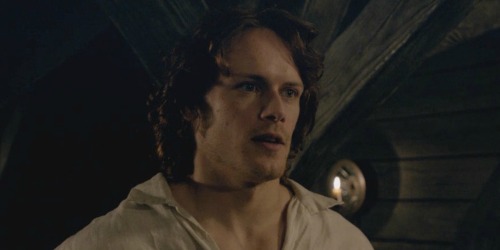
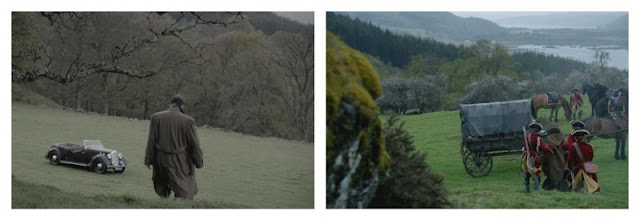




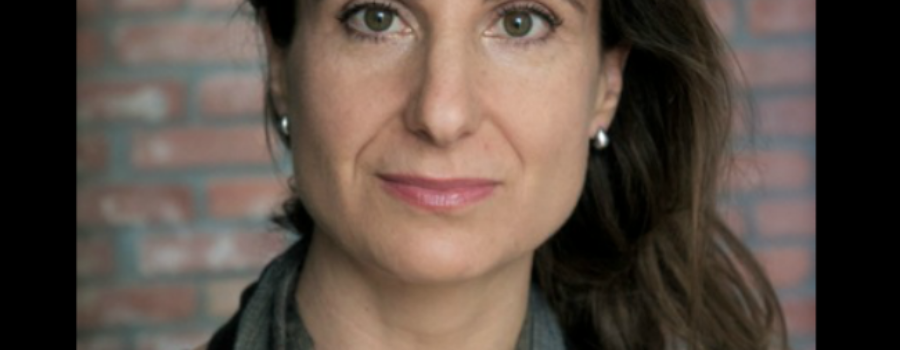




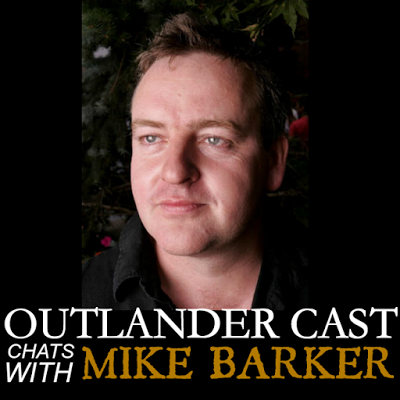
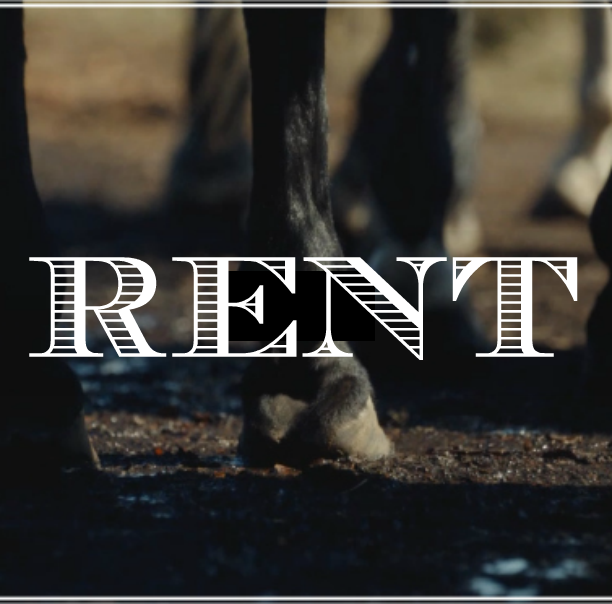
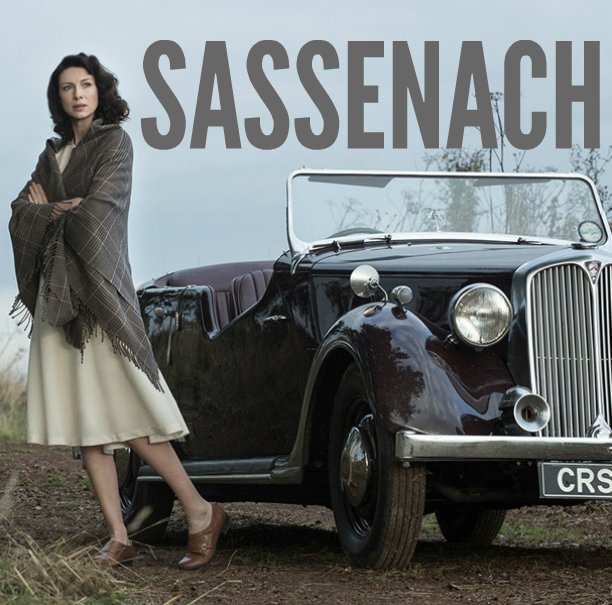

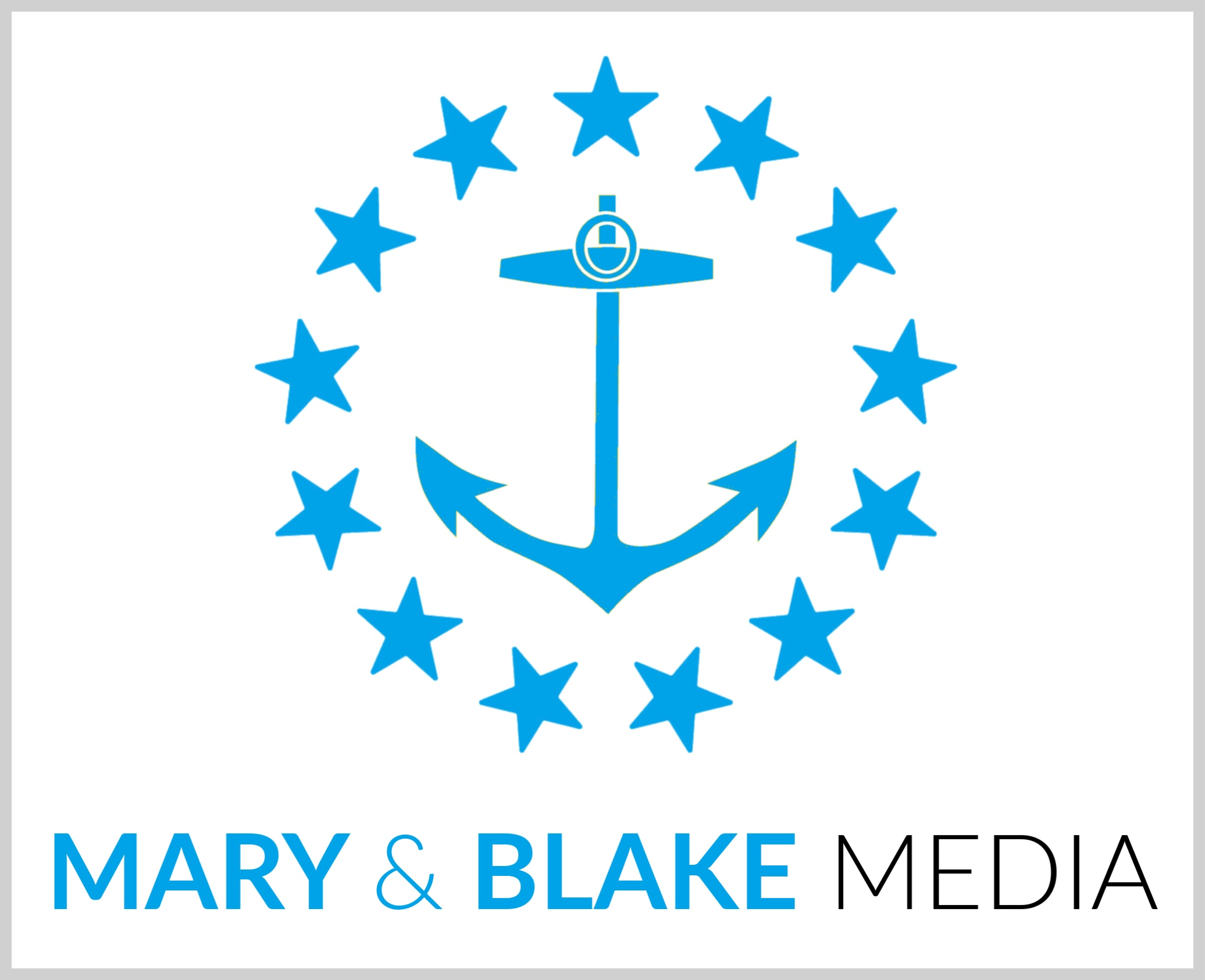

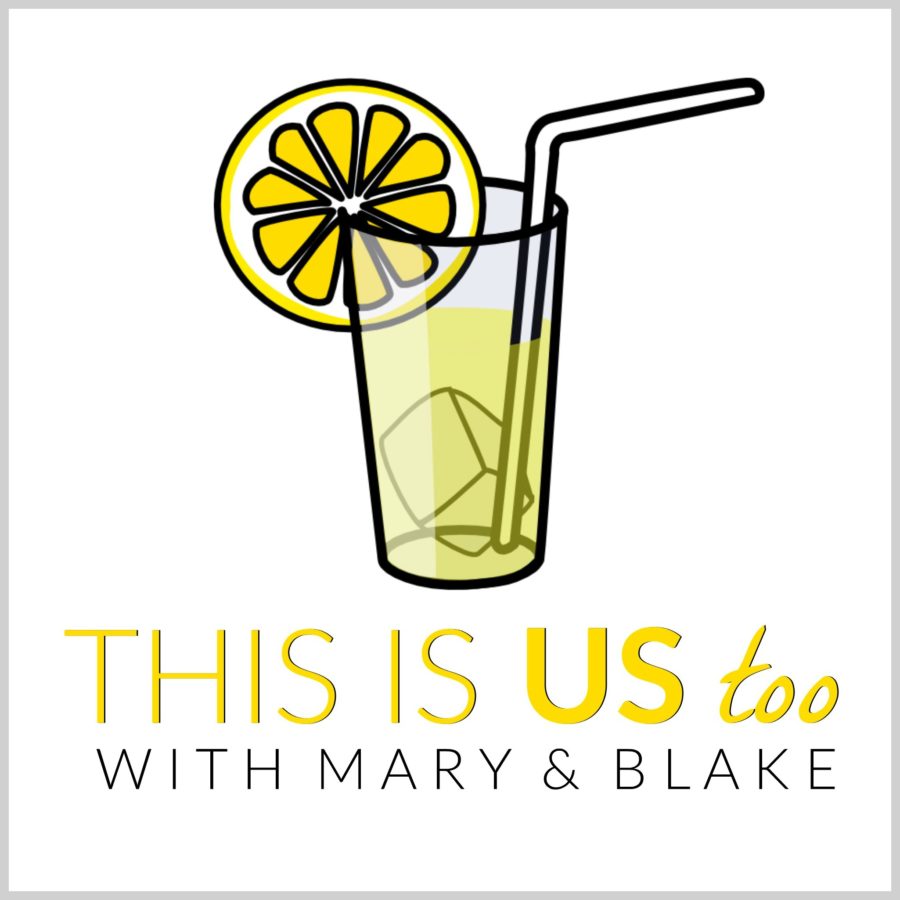

4 Comments
Leave your reply.